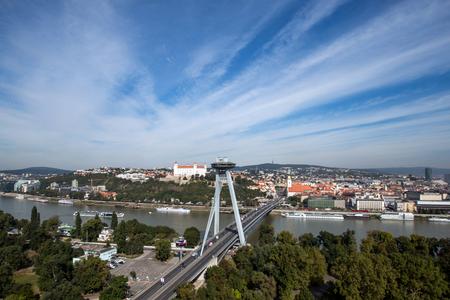The platform that enables people to accommodate guests in their private homes or apartments for a fee is becoming more attractive to Slovaks. While last year there were 1,400 active ads offering accommodation in Slovakia, this year there are 2,500, according to the Sme daily. Most of the ads are for stays in Bratislava – last year the capital had 500 ads, and this year it has already seen 930, Sme wrote on June 28.
Bratislava Mayor Ivo Nesrovnal praises Airb’n’b for increasing tourism but criticises it for stripping the city of money, as visitors who stay in the city’s hotels and hostels must pay a €1.70 tax per person per night. Bratislava management recently tipped some Airb’n’b offers and checked whether they pay this tax. Of the 93 checked, only two paid the tax. However, more precise data are not available, as the mediator is a foreign company, and accommodators often operate under various nicknames, making the tax difficult to collect, Marek Papajčík, spokesperson of the Bratislava Office, told the daily. The office already wrote to the Airb’n’b headquarters in San Francisco, warning that they have to observe local laws and pay taxes.
Problem with taxes in shared economy
Alica Orda Oravcová, president of the Tax Forum of Slovakia, points out that the core issue is the unclear wording of the law on local taxes, which is ambiguous in the details on how the accommodation tax shall be paid. The law will have to be amended to specify the duties of the flat’s owner, she added. The short-term rental of a house or flat, however, needs not be taxed.
Airb’n’b, as well as Uber , should also be taxed, Finance Ministry said, and it is trying to amend the law on income tax on how firms which operate in Slovakia, as well as in the shared economy, should pay taxes for their profits. The OECD also recommends introducing such measures, but Orda Oravcová points to the potential problems stemming from the different rates at which changes would be introduced in individual countries, which creates the risk of possible double taxation.
The shared economy has been used minimally as a source of income, with its share remaining less than 0.01 percent of GDP, Sme wrote, citing former analyst of the Finance Policy Institute Libor Melioris, who specified that this is less than ten million euros.



